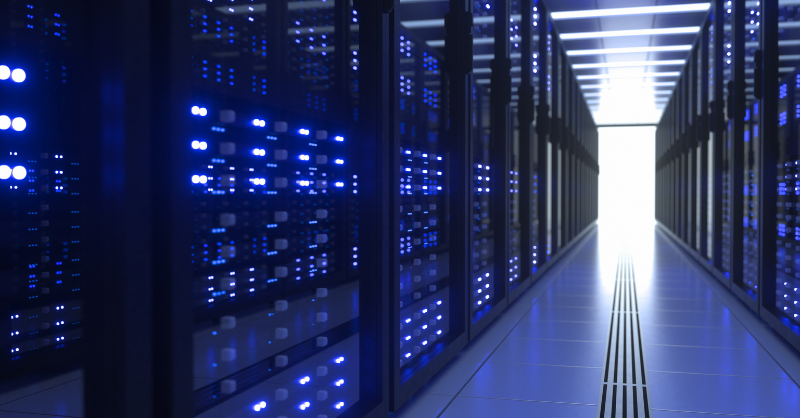There is no denying that in our current business landscape, the paradigm towards remote work has ushered us all into a new era of previously unprecedented flexibility and productivity. The Working from everywhere model is not only being kept up after the pandemic but actively used as a benefit and is still being implemented more and more in companies globally.
But with it comes the paramount concern of the security of sensitive corporate data. In an environment, where employees are able to access company networks from various locations and sometimes even devices, ensuring robust data security measures becomes an absolute imperative for safeguarding their intellectual property and client information, as well as maintaining the trust of stakeholders.
Experts are Pleading to get Proper Strategies in Place
“Issues of security are particularly important,” says Alexandra D’Archambeaum, IT Advisory Director with RSM Global in Belgium – an expert who understands the new business landscape. “[They] must be discussed and outlined as part of a successful ‘working from anywhere’ culture.” This begins with implementing robust encryption protocols across all communication channels and devices – whether that be through a virtual private network (VPN) or by accessing cloud-based services, encryption will ensure that all data stays confidential and protected from unauthorized access. “Awareness plays a big part in both the real world and the digital, so remote workers must understand the risks of phishing and social engineering as well as the folly of leaving a desktop unlocked and unsupervised, even for a very short period of time”, the expert continues.
The Menace of Free Wi-Fi Networks
Especially risks like the usage of free Wi-Fi networks are high on that list. In the quest for connectivity and availability, remote workers often resort to this type of free access, perhaps not even realising the potential cyber threats it entails. Public spaces, such as co-working areas, cafés, and airports, present additional challenges. Being overheard or having screens overlooked – especially concerning sensitive confidentialities, can happen in a matter of seconds. In response, things such as privacy screens can mitigate some of those risks effectively, as well as a thorough education for all employees – fully remote, as well as hybrid. It is pivotal to understand that the human element now becomes a critical factor, so being able to recognise potential security threats such as phishing attempts and social engineering tactics, is fundamental. Enabling extra layers of defence, like multi-factor authentication (MFA), significantly reduces the risk of unauthorized access – even if credentials are compromised.
Establishing a Realistic Framework for Remote Work
“Whether operational challenges, practical matters or data security – employees and employers will benefit from a realistic framework that establishes responsibilities, protocols, processes and red lines”, so D’Archambeaum. Working from anywhere is something that is sure to become a permanent fixture in our culture. And though it offers new challenges, and new infrastructures that need to be put in place to protect against evolving cyber threats, it’s nothing to be worried about, when tackled accurately: “There is much to gain from remote and hybrid working, and little to fear, with the right measures in place.”
Leveraging Technology for Enhanced Security Measures
In the, surely by now never-ending, quest for robust data security, organisations are in need of turning to cutting-edge technologies to fortify their defences. Artificial intelligence (AI) and machine learning algorithms play a pivotal role in identifying and mitigating potential security threats. It is something that is going to follow us everywhere we go, the more connected and digitalised our world is getting by the minute. These technologies analyse patterns of user behaviour, detect anomalies, and can promptly respond to suspicious activities – adding a much-needed layer of intelligence and capabilities to the modern infrastructure that is needed for businesses. Additionally, the adoption of endpoint security solutions ensures that all devices used by remote workers are equipped with the latest security patches and safeguards, creating an even more resilient defence against cyber threats.
Building a Culture of Vigilance and Adaptability
Beyond technological solutions, however, fostering a culture of vigilance and adaptability becomes now more important than ever, too. And especially among remote workers, this is crucial. Regular training programs that keep your employees informed about the latest cybersecurity threats and best practices should be implemented, the same as with regular tests, to create false alarms. Encourage a proactive approach to reporting any unusual activities or potential security breaches. Make it a normal, instead of a rare case. Create a collective sense of responsibility – because that’s what it is. This culture extends to continuous evaluation and enhancement of security protocols in response to eventual threats. If you can instil a mindset of adaptability, your organisation can stay ahead of cyber adversaries and ensure that your remote work environment remains secure and resilient, going into the future.
If you’re looking to build a career in Cybersecurity, check out our latest blog: 5 Tips for Starting Your Cyber Security Analyst Career.
Navigate with Confidence
As we said at the top – the new and agile, diverse working landscape is here to stay. The shift towards remote and hybrid work, the fusion of flexibility and productivity, should be seen as an opportunity. It opens new doors for businesses, but there are challenges along the way, as well. Addressing these concerns in time demands a multifaceted approach – but it’s necessary, if you want to protect yourself in this two-faced era of ubiquitous connectivity. It’s important. But at the same time, it can not only be just a necessity, but become a strategic advantage.


 January 26, 2024
January 26, 2024














